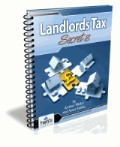Be careful about misusing the ‘Private Residence Relief’
Question
Someone once told me about the following trick they do before selling properties and I want to know if it is legal.
When this person (who owns lots of rental properties) decides to sell one, he prepares it (cleaning, fixing, etc.) as much as he deems necessary to get the price he wants. Whilst he is doing this, he lives in the property (usually several months). All of the utilities and the council tax are in his name. When he sells it, he sells it as his “main property” because he has been actually living in it for a period of time, thus avoiding the taxation normally associated with selling let property. The house he would usually use as his main residence is rented out whilst he is residing in the other property. For those of us who are single and very mobile (not too attached to one house), this might work quite well (if legal) on properties we have keep for a long period of time and your other tax tricks won’t work. Ian Says There is nothing illegal in what is proposed at first glance. However, principal private residence relief is based on the 'intention to reside permanently' and hence the suggested course of action is doomed to failure. Clearly the intention is to try and gain a tax advantage and the intention is to sell after a few months and realise a profit. Even if PPR relief was established, this would only cover the last three years of ownership and hence there would still be a considerable exposure to CGT. Furthermore, serial sellers run the risk of being classed as property traders and taxed to income tax rather than CGT, which would mean losing the annual allowance.
Case Study
|

To enrol in the 7 tax saving strategies email course complete the form below. The first module will be emailed to you immediately.

 UK Property Tax Q&A
UK Property Tax Q&A
